Ajmal Khan Areethala, the Mittal Institute’s Raghunathan Fellow, works at the intersection of the environment, development, and climate change. His current research looks at how universal frameworks of climate justice negotiate with local and specific experiences of climate change in regions of South Asia. His Ph.D. in Development Studies from Tata Institute of Social Sciences, Mumbai looked at the ongoing nuclear expansion policy in India and local responses. We spoke with Ajmal about his work, and his new book, available to order now.
Mittal Institute: Thank you, Ajmal, for speaking with us. You are a first-generation learner and college graduate, who has lectured and researched across the world. Can you talk about your early influences, and what sparked this interest in climate change and the environment?
Ajmal Khan Areethala: Thank you very much! I was born and grew up in a village called Anchachavadi near Nilambur in the state of Kerala and studied in vernacular government schools nearby. I belong to a socio-economically and educationally backward community; from early on I did many odd jobs and supported my studies. I had realized the social change and mobility that education can bring to such communities, particularly education for girls, and I was involved in trying to support students to get educated from marginalized backgrounds in India, and continue to do that. I will most probably be the first person from such a background to hold a fellowship at Harvard University, so thank you!

Ajmal Khan Areethala, LMSAI Raghunathan Family Fellow.
After my bachelor’s, I got the opportunity to study at Tata Institute of Social Sciences, Mumbai from where I finished my master’s and Ph.D. in Development Studies. I then briefly taught at Ambedkar University and Ashoka University in Delhi and held a fellowship at the School of Oriental and African Studies (SOAS) University of London. Growing up in a village in the middle of a river and hills, I was fascinated with the natural environment since childhood—but they gained my academic attention much later. Studying the natural environment and our interactions with nature and other species intrigued me, and this grew as a philosophical and political interest. In between, I also got an opportunity to work on research projects that were funded by organizations like the International Institute of Environment and Development in London and the World Resources Institute, Washington DC. This further drew my attention to climate change, the environment, and climate justice. I was also deeply influenced and disturbed by the Anthropocene proposal and susbequent debates. Then, when you are in countries like India, it’s unlikely that you don’t notice the inequality that is blatant in everything and everywhere.
My Ph.D. research looked at India’s nuclear expansion plan and protest movements at locations where nuclear power projects are being planned and constructed, and the interfaces of environment, energy, and social justice. I conducted fieldwork in the largest nuclear power plant in India, Kudankulam in Tamil Nadu, and the proposed world’s biggest nuclear power project in Jaitapur, Maharashtra. I demonstrate the trajectory of the protest movements and argue that they emerged on account of the growing understanding and awareness about nuclear power, its inherent vulnerabilities, and the local perceptions of risks by the fishers, farmers, and other locals.
Mittal Institute: Can you tell us about the project/research you are working on during your fellowship?
Ajmal Khan Areethala: I am currently working on a manuscript that looks at climate justice within India, considering the unique socio-ecological hierarchies and inequalities in the sub-continent. The book pays closer attention to the experience of Dalit, Adivasi (Indigenous people), and Other Backward Class communities – farmers, fisher people and women from these groups – to climate change. The book hopes to highlight the limits of the universal frameworks of climate justice in a society where unique forms of injustice, inequalities, and its multiple intersections and intertwined relationships determine and mediate the experience of climate change.
I also hope to observe and understand climate change and the disproportionate burden on the indigenous people, Afro-American, Latinx, and other vulnerable groups in the Americas. I am interested to also understand more about how industry and business engage in climate change here in the U.S., and the social implications of new technologies for carbon capture, geo-engineering, and renewable energy, etc.
My [current] book project looks at climate justice within India considering the unique socio-ecological hierarchies and inequalities in the sub-continent … I also hope to observe and understand climate change and the disproportionate burden on the indigenous people, Afro-American, Latinx, and other vulnerable groups in the Americas.
Mittal Institute: Climate change is often called the most intractable problem of our time. What does India’s response look like?
Ajmal Khan Areethala: Yes that is true. I was born after a year the Intergovernmental Panel on Climate Change (IPCC) was formed and by now the scientific evidence is unequivocal: climate change is a threat to human well-being and the health of the planet. Any further delay in concerted global action will miss a brief and rapidly closing window to secure a liveable future. Many parts of the global south and island nations have already becoming uninhabitable and communities are moving. Climate change is a “civilizational” crisis, or more specifically, the crisis of the modern industrial civilization supported by fossil fuels, and we as a species must make a concerted effort to radically alter how we live, particularly in the global north, China and India. The world is looking at the Chinese and Indian leadership in terms of future emission reductions. However, we have to understand that around 70 percent of Indians live on less than 2 dollars a day, and half of India’s population is below the age of 25. Though India made considerable progress in solar power, the share of coal is likely to remain the same for the coming decades.
On the other end, India is one of the most climate-vulnerable countries in the world with a huge share of the poor population and population that is dependent on natural resources. Any crisis will make catastrophic impacts at the societal level in India; for example, the world has witnessed what was going on during the COVID pandemic. Our public systems aren’t sufficient to cater to the needs of the people, and inequality exists at all levels within. Hence, India’s response—apart from the mitigation and adaptation targets—should also consider the majority of the poor and vulnerable populations such as Dalit, Adivasis, fisher people, farmers, urban poor, women, and other minorities.
Ajmal’s Research Photos
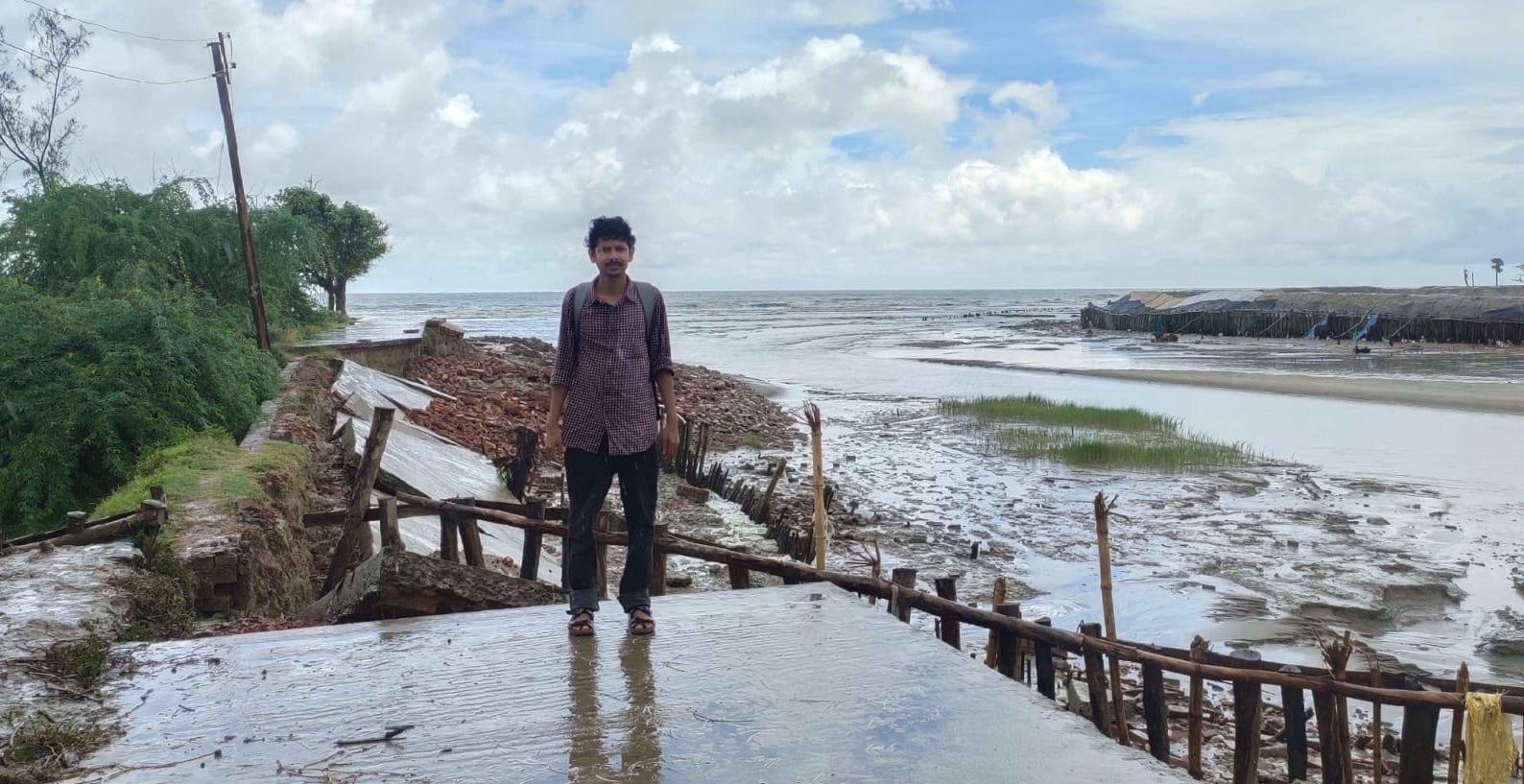
Dhablat is a sinking village due to sea level rise, located in the Indian Sundarbans.
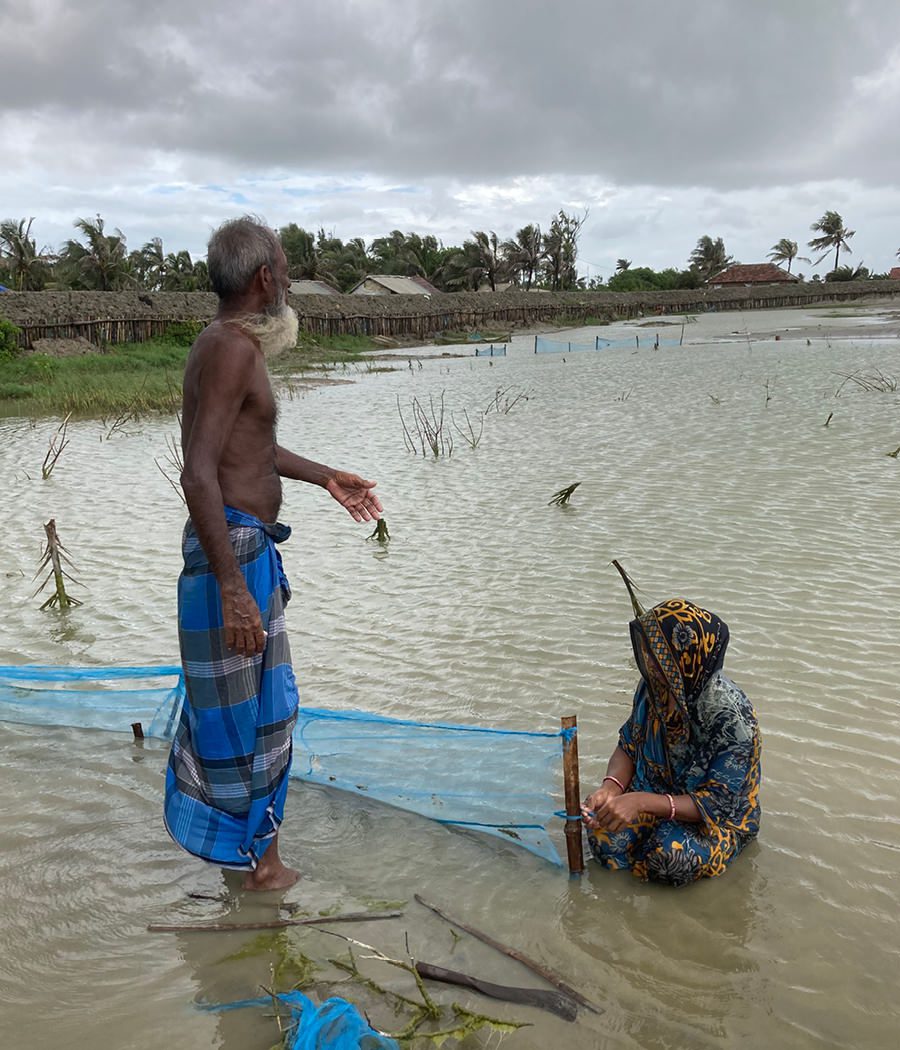
A family in the Sagar Island that has shifted their house 5 times due to the sea level rise, 24 Paraganas South District, West Bengal, India.
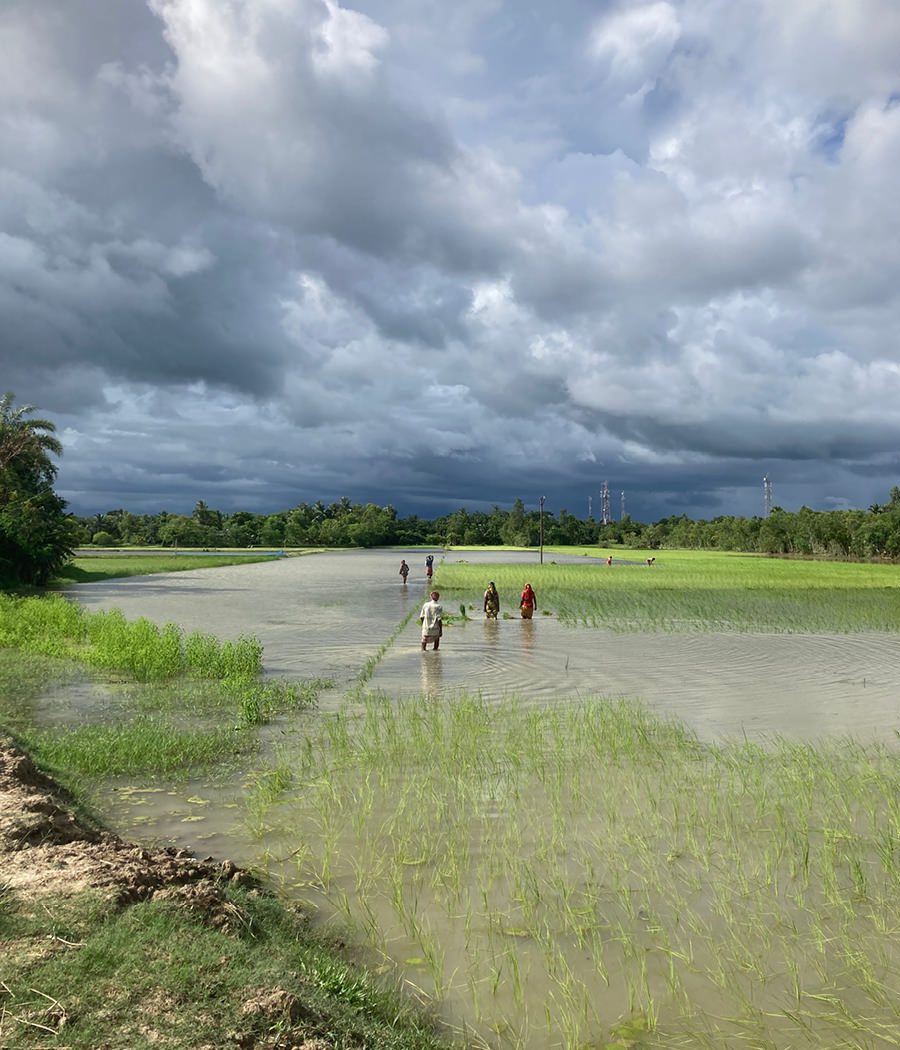
Adivasi farmers in the field in Indian Sundarbans during a cyclone warning in August 2022.
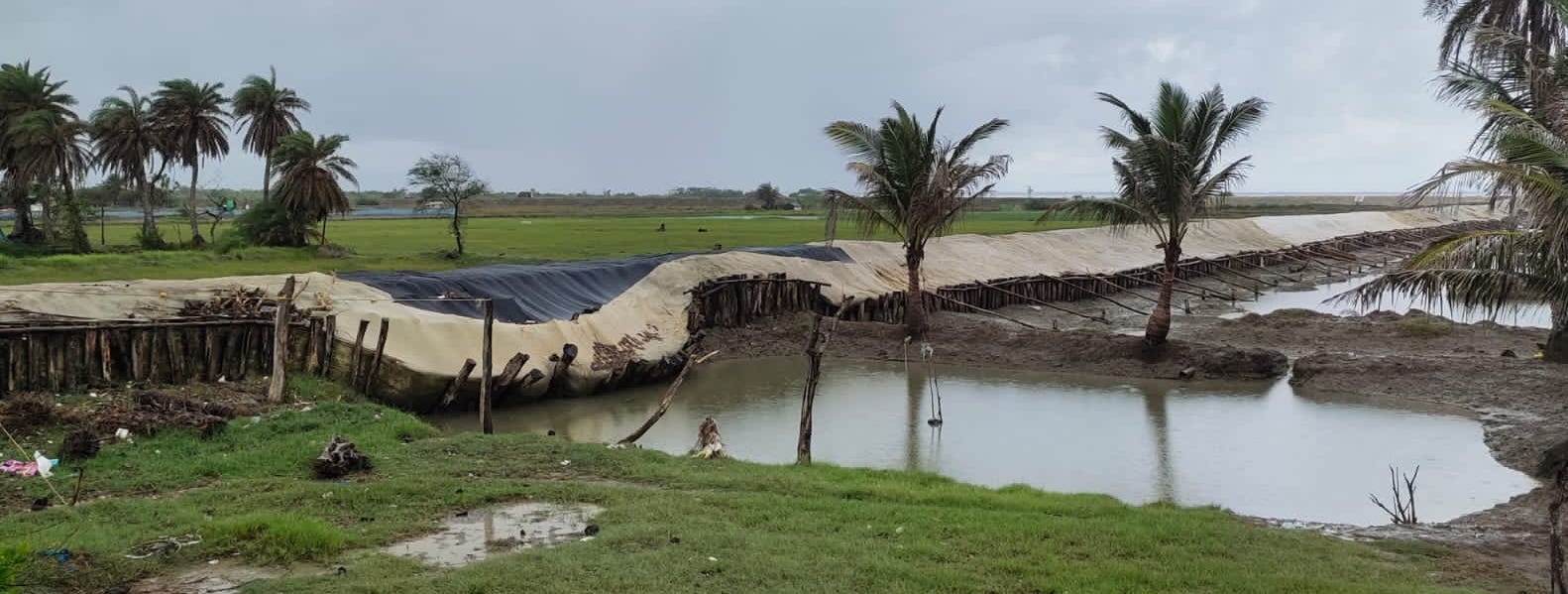
Barriers constructed with local technology and materials to prevent sea level rise, Sagar Island, 24 Paraganas South District, West Bengal, India.
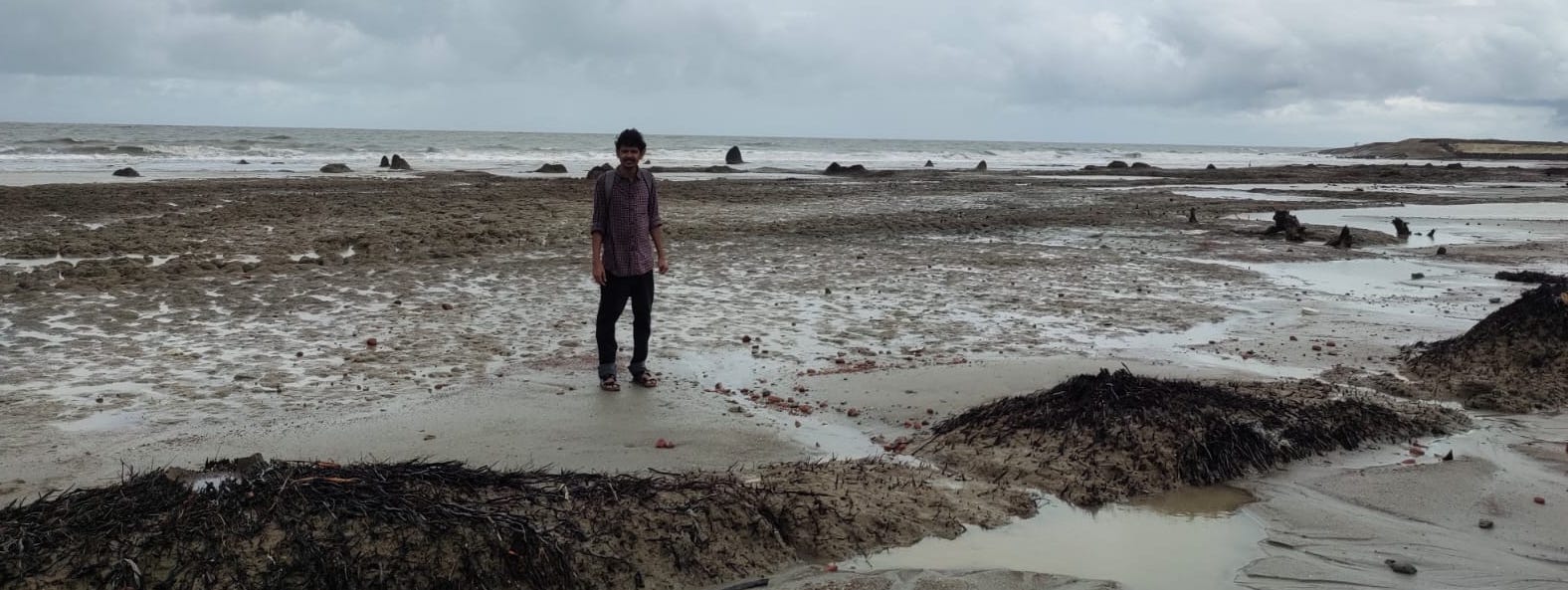
Villages in this part of the Sagar Island are underwater now.
Mittal Institute: You are the editor of a new book, People Against Nuclear Energy: Anti-Nuclear Movements in India, available for purchase now. What led you to write the book, and what lessons can we glean from it?
Ajmal Khan Areethala: In South Asia, India is a leading nuclear power with one of the biggest ongoing nuclear power expansion plans in the world. Though India promoted nuclear energy as a crucial source of energy since the early years of independence, and recently in the context of climate change, it has not been able to produce any significant amount of energy outputs from nuclear power so far. In the meanwhile, local protest movements emerged across India at sites where projects were being established, proposed, and planned. The idea of this book emerged while I was writing my Ph.D. thesis in Mumbai about Jaitapur and Kudankulam. I felt a lack of serious engagement around these movements and collaborated with scholars who were working on other sites from across the country. The book documents five decades of protest movements against nuclear power projects and uranium mining in India, spread across 15 sites from the states of Tamil Nadu, Andhra Pradesh, Telangana, Kerala, Maharashtra, Gujarat, West Bengal, Haryana, and Jharkhand. Chapters in this book demonstrate the trajectory of the power projects, mining plants, and the protest movements against them inspired by global history and local contexts. This should be the first comprehensive people’s history of movements against the nuclear power projects in India. This book, I believe, will be a resource for anyone interested in energy, social movements, development studies, human rights, climate change, and those who are concerned about the future of our planet and the life of the most marginalized and indigenous communities in South Asia.
Mittal Institute: You are also a published poet. What does writing poetry mean to you, and what topics do you find yourself focusing on?
Ajmal Khan Areethala: Haha, I write poetry sometimes. I’ve read poems since childhood and wrote in my mother tongue, Malayalam. I had read Mahmoud Darwish, Agha Shahid Ali, Adonis, Nizar Qubbani etc. After I arrived in Mumbai, I got involved in anti-caste and progressive movements in the city, and a new world was opened up for me. My readings then grew through Dalit poets, like Annabhau Sathe, Vilas Ghogre, Namdeo Dhasal, and contemporary Black and Asian American poets.
Everything comes in when I write poems, but my recent book of poems is a collection of poems weaving history with the contemporary that demonstrate despair, trauma, grief, varied facets of violence, identity assertion, and the crisis of the cross-generational experiences of Muslims in India. I hope being here will also inspire me to write more poems, which I haven’t done for a while now.
Mittal Institute: How do you see your fellowship with the Mittal Institute advancing your work? What does being at Harvard mean to you?
Ajmal Khan Areethala: This fellowship will indeed advance and enrich my work in multiple ways. Harvard, of course, is known for its global academic and intellectual leadership and I am grateful to have professors Naomi Oreskes and Loretta J.Mickley to mentor me while I am here. Naomi is a leading global voice on climate change. Apart from that, I hope to also be able to utilize the vast materials and expertise on environment, development, and climate change research going on at multiple schools and centers at Harvard and beyond.
I sincerely want to thank Professor Tarun Khanna, Hitesh Hathi, Danielle Wallner, Selmon Rafey, Carlin Carr at Harvard, and everyone else who has helped and supported me throughout this journey.
Read more about Ajmal here.
